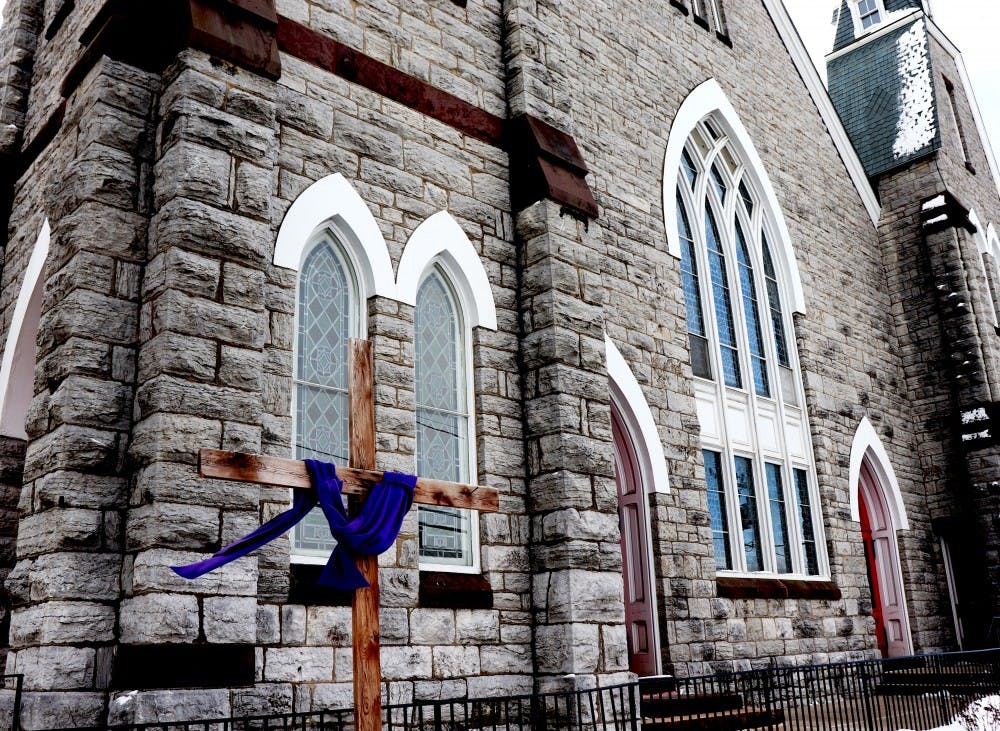Walking into a church on a Sunday morning when the air is bright and crisp, the sun seeps rainbows from the stained glass windows and the hum of a choir rejoices in the background. The minister at the front preaches the gospel and promises a life of eternity, if you follow the rules.
The older woman in the back pew tugs her shawl around her shoulders to fight the drafty air as she bows her head and closes her eyes in silent prayer. A little boy reaches behind his mother’s back to tug his sister’s hair. He smiles devilishly. The community joins together in hymn and creates an ambiance that echoes toward the heavens.
“God is here,” the minister says. “Bow your heads in prayer.”
But the younger generation has said “enough.”
More than one-third of Americans between 18 and 35 years old have checked “none” under claiming a religious identity, according to a 2015 survey conducted by the Pew Research Center.
However, that does not mean they are without God.
While millennials are abandoning organized religion, the numbers of their generation’s feeling of spirituality have increased.
Anthropology professor Christopher Kovats-Bernat believes this shift from religiosity and spirituality has stemmed from the democratizing effects of social media.
“There’s a much more public and free dialogue that exists for your generation that may not have existed, say, for my generation anyway,” he said. “And I think too that there is that sort of democratizing ethos that exists because of the openness of social media.”
Kovats-Bernat believes millennials’ ability to question authority figures on social media is creating a less tolerant environment for a hierarchical system, such as organized religion.
Communication/journalism professor Kyle Heim suggested that there is a correlation between social media’s powerful abilities and the weakening of trust of higher institutions in our society.
In his opinion, a major factor to this “none” phenomenon is that the increase of power that is placed in the hands of citizens leads to a decrease of their need for government and religious organizations.
“People are not as reliant on those powerful institutions, and instead they are turning to other sources to satisfy their spiritual needs,” Heim said.
Many have argued that another factor is the tools millennials have access to, to gain more information and reach like-minded communities.
Heim noted social media’s ability to open a dialogue with people of different backgrounds and connect smaller communities to a much bigger world.
“I think that being in contact with people from so many different believes may mean that people are less likely to adhere to one specific religious belief,” he said.
Heim used an example of someone living in a small, rural community where everyone in the area is Catholic and shares the same beliefs. However, with the internet, people could easily come into contact with someone who is Buddhist or Muslim, which opens up an entire world of possibilities.
Kovats-Bernats related millennials’ current situation to one of someone facing relief through Alcoholics Anonymous, which is an openly non-religious organization but is bounded by the notions of spirituality.
“Spirituality is at the foundation of that notion of treating your addiction,” he said. “You have to accept some spirituality, but you are not required to be religious in any way.”
The first step in AA’s 12-step program is to accept the fact that you are powerless over your addiction and give yourself over to God as you understand Him.
Is that what millennials are currently doing?
Fifty percent of younger millennials believe in God with absolute certainty, according to a Pew Research Center study. It was reported that 62 percent seldom participate in prayer or study religious scripture, but nearly half of these people still felt “spiritual peace and well-being.”
Kovats-Bernats believes a reason for this switch from religion to spiritual feelings is the comfort that practices such as meditation provide.
Perhaps within a generation that rejects notions of hierarchal organizations providing a set-in-stone rule-book, a concept of having an individualized spiritual belief allows a sense of control.
Maybe in the future, more millennials will be found in their bedroom during the dawning of a Sunday morning, breathing in the freshly-lit candle and wrapping their legs crisscrossed on the floor. They may close their eyes, breathe deeply and exhale.
“My god is here,” they may say.


The Slate welcomes thoughtful discussion on all of our stories, but please keep comments civil and on-topic. Read our full guidelines here.